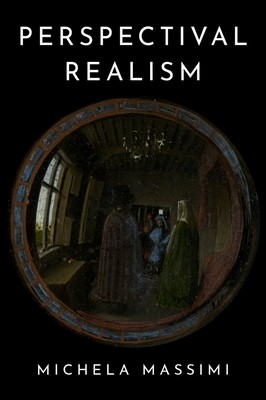
- We will send in 10–14 business days.
- Author: Michela Massimi
- Publisher: Oxford University Press, USA
- ISBN-10: 0197555624
- ISBN-13: 9780197555620
- Format: 16.3 x 24.2 x 3.3 cm, hardcover
- Language: English
- SAVE -10% with code: EXTRA
Reviews
Description
What does it mean to be a realist about science if one takes seriously the view that scientific knowledge is always perspectival, namely historically and culturally situated? In Perspectival Realism, Michela Massimi explores how scientific knowledge grows and evolves thanks to a plurality of epistemic communities occupying a number of scientific perspectives. The result is a philosophical view that goes under the name of "perspectival realism", and it offers a new lens for thinking about scientific knowledge, realism and pluralism in science.
Perspectival Realism begins with an exploration of how epistemic communities often resort to several models and a plurality of practices, drawing on examples from nuclear physics, climate science, and developmental psychology. Massimi explains the perspectival nature of scientific representation, the role of scientific models as inferential blueprints, and the variety of scientific realism that naturally accompanies such a view. Perspectival realism is realism about phenomena (rather than about theories or unobservable entities). This novel realist view places epistemic communities and their situated knowledge center stage. The result is a portrait of scientific knowledge as a collaborative inquiry, where the reliability of science is made possible by a plurality of historically and culturally situated scientific perspectives. Along the way, Massimi offers insight into the nature of scientific modelling, scientific knowledge qua modal knowledge, data-to-phenomena inferences, andnatural kinds as sortal concepts. Perspectival Realism offers a realist view that takes the multicultural nature of science seriously and couples it with cosmopolitan duties about how one ought to think about scientific knowledge and the distribution of benefits gained from scientific advancements. This is an open access title available under the terms of a CC BY-NC-ND 4.0 International license. It is free to read at Oxford Scholarship Online and offered as a free PDF download from OUP and selected open access locations.
EXTRA 10 % discount with code: EXTRA
The promotion ends in 15d.05:09:11
The discount code is valid when purchasing from 10 €. Discounts do not stack.
- Author: Michela Massimi
- Publisher: Oxford University Press, USA
- ISBN-10: 0197555624
- ISBN-13: 9780197555620
- Format: 16.3 x 24.2 x 3.3 cm, hardcover
- Language: English English
What does it mean to be a realist about science if one takes seriously the view that scientific knowledge is always perspectival, namely historically and culturally situated? In Perspectival Realism, Michela Massimi explores how scientific knowledge grows and evolves thanks to a plurality of epistemic communities occupying a number of scientific perspectives. The result is a philosophical view that goes under the name of "perspectival realism", and it offers a new lens for thinking about scientific knowledge, realism and pluralism in science.
Perspectival Realism begins with an exploration of how epistemic communities often resort to several models and a plurality of practices, drawing on examples from nuclear physics, climate science, and developmental psychology. Massimi explains the perspectival nature of scientific representation, the role of scientific models as inferential blueprints, and the variety of scientific realism that naturally accompanies such a view. Perspectival realism is realism about phenomena (rather than about theories or unobservable entities). This novel realist view places epistemic communities and their situated knowledge center stage. The result is a portrait of scientific knowledge as a collaborative inquiry, where the reliability of science is made possible by a plurality of historically and culturally situated scientific perspectives. Along the way, Massimi offers insight into the nature of scientific modelling, scientific knowledge qua modal knowledge, data-to-phenomena inferences, andnatural kinds as sortal concepts. Perspectival Realism offers a realist view that takes the multicultural nature of science seriously and couples it with cosmopolitan duties about how one ought to think about scientific knowledge and the distribution of benefits gained from scientific advancements. This is an open access title available under the terms of a CC BY-NC-ND 4.0 International license. It is free to read at Oxford Scholarship Online and offered as a free PDF download from OUP and selected open access locations.


Reviews